June 9th, 2011Agile Brazil 2011 – I’m going!
Clique aqui para ler em Português
I’m excited to be going to Fortaleza at the end of this month to present and organize Agile Brazil 2011. Last year in Porto Alegre I decided to focus on the organization aspects of the conference, but this year I decided to present again. Even though I’ve been participating in conferences around the world, my last talk in Brazil was in 2008 and I really miss being around the Brazilian community and sharing experiences with everyone. That’s why I’m happy to be presenting in (mostly) Portuguese again :-)
Managing your technical debt – June 29th
In this 50 minutes talk, I will cover a few practices and ideas I’ve used and seen used in projects to manage technical debt responsibly. Some of the topics I will cover are:
- What is technical debt and what are the consequences of incurring it
- Ideas on how to identify “hot spots”
- How to prioritize and plan the payment of your debt
- Tracking and visibility
- How to avoid incurring debt
- Communicating the importance of paying technical debt to non-technical managers and stakeholders
Slicing and dicing your user stories – July 1st
Co-presenting with Jenny, in this 50 minutes talk we will discuss the benefits of working with small user stories, and present different ways to split requirements into user stories. The session will cover topics related to:
- What makes good user stories
- How to break down features into smaller chunks without losing track of the overall goal
- Different ways to split stories into vertical slices
- Helping stakeholders to track and understand how the feature will be delivered piece by piece
- Planning the delivery to increase feedback
Refactoring Katas – July 1st
In this 10 minutes Lightning Talk, I’ll share an idea I’ve been using to practice refactoring. Using a different Kata format, I will explain the mechanics and quickly demonstrate it in practice.
If you haven’t registered yet, you can still register online. And if you are around Rio and São Paulo the following week, I will be giving ThoughtWorks’ AWS Training, which you can register here. I’m looking forward to seeing you in Fortaleza!
Agile Brazil 2011 – Eu vou!
Estou empolgado com a viagem para Fortaleza no final do mês para participar e organizar a Agile Brazil 2011. No ano passado em Porto Alegre, eu decidi me focar mais na organização do evento, mas esse ano resolvi apresentar. Mesmo estando participando de diversas conferências ao redor do mundo, minha última palestra no Brasil foi em 2008 e eu sinto saudade de estar compartilhando experiências com a comunidade brasileira. É por isso que estou feliz por apresentar (na maior parte) em Português novamente :-)
Gerenciando sua dÃvida técnica – 29 de Junho
Nessa palestra de 50 minutos, eu vou apresentar algumas idéias e práticas que tenho usado para gerenciar dÃvida técnica de forma responsável. Alguns dos tópicos que irei abordar:
- O que é dÃvida técnica? Quais os sintomas mais comuns e qual as consequências do acúmulo de dÃvida técnica?
- Formas de identificar e encontrar “hot spotsâ€
- Como priorizar e planejar o pagamento da dÃvida
- Tracking e visibilidade
- Como evitar o acúmulo
- Idéias para convencer gerentes e pessoas sem conhecimento técnico sobre a importância de pagar a dÃvida
Slicing and dicing your user stories – 1 de Julho
Apresentado junto com a Jenny, essa palestra de 50 minutos vai discutir os benefÃcios de usar user stories pequenas e apresentar diferentes formas de dividir requisitos em histórias. A palestra vai cobrir tópicos sobre:
- CaracterÃsticas de boas user stories
- Como quebrar funcionalidades em pedaços pequenos sem perder a visão do todo
- Diferentes idéias para quebrar requisitos em fatias verticais
- Formas de ajudar stakeholders a rastrear e entender como uma funcionalidade será entregue em pedaços menores
- Planejamento da entrega para maximizar o feedback
Refactoring Katas – 1 de Julho
Nessa Lightning Talk de 10 minutos, vou compartilhar uma ideia que tenho usado para praticar refatoração. Usando um formato de Kata diferente, vou explicar a mecânica do exercÃcio e demonstrar um pouco como ela funciona na prática.
Se você ainda não se inscreveu, ainda pode se inscrever online. E caso esteja por perto no Rio e em São Paulo na semana seguinte, estarei ministrando o Treinamento AWS da ThoughtWorks, que você pode se inscrever aqui. Vejo vocês em Fortaleza!

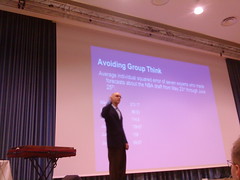

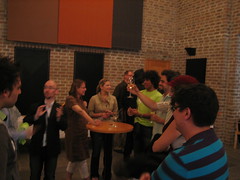
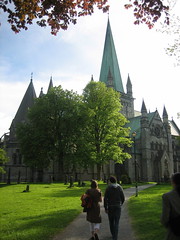

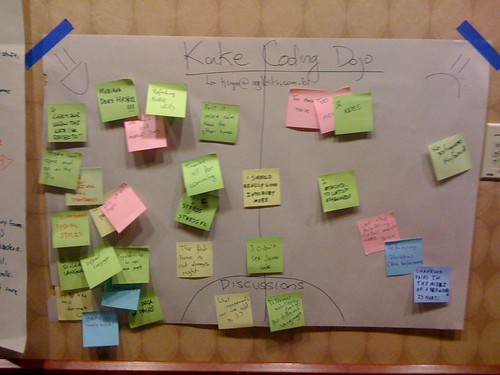
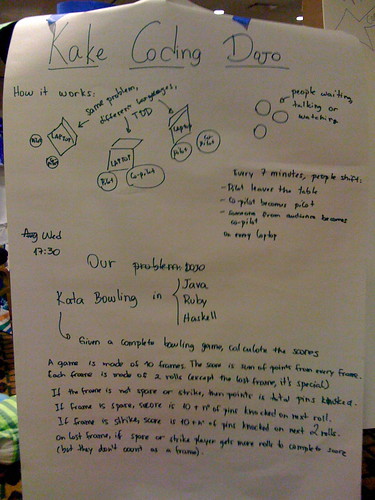
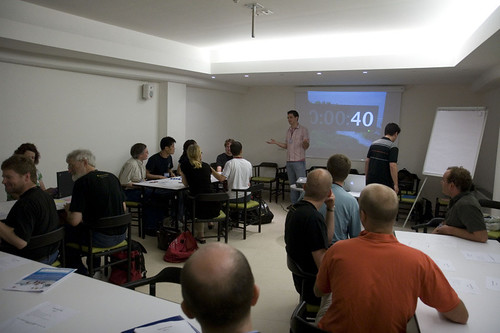
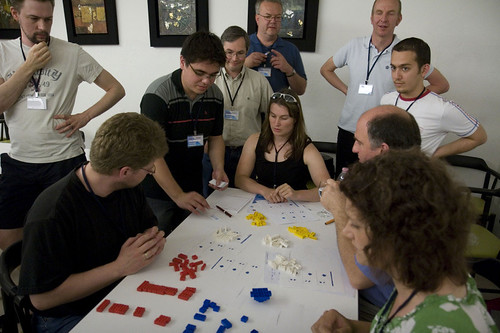


 Twitter
Twitter LinkedIn
LinkedIn Facebook
Facebook Flickr
Flickr